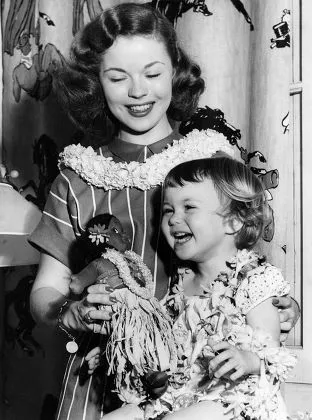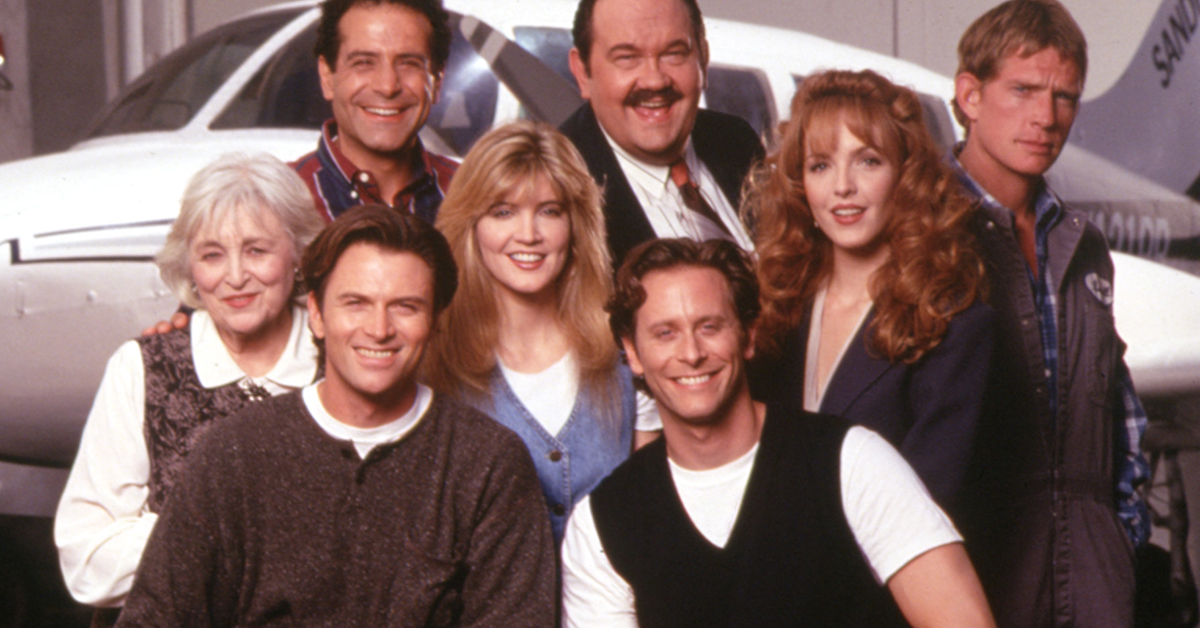In the golden age of television, "The Beverly Hillbillies" stood as a shining example of the power of laughter and the enduring appeal of simple, heartfelt humor. Airing from 1962 to 1971, this classic sitcom, created by Paul Henning, followed the hilarious journey of the Clampett family, a group of hillbillies who struck it rich and moved to Beverly Hills, California. With its timeless charm and unforgettable characters, "The Beverly Hillbillies" remains a beloved staple in American television history. In this article, we will explore the show's cultural impact, enduring appeal, and the reasons behind its remarkable success.
(Watch the video below)

The Plot that Struck Gold
"The Beverly Hillbillies" begins with a simple yet absurd premise: the Clampett family, a group of Appalachian hillbillies, becomes unimaginably wealthy overnight. The catalyst for this drastic change is the discovery of oil on their land, a windfall that instantly transforms them into millionaires.
The family consists of Jed Clampett (played by Buddy Ebsen), the wise and kind patriarch; Granny (Irene Ryan), the fiery and lovable matriarch; Jethro Bodine (Max Baer Jr.), Jed's simple-minded nephew; and Elly May Clampett (Donna Douglas), the tomboyish yet charming daughter. This motley crew heads to Beverly Hills, where they purchase a lavish mansion, oblivious to the cultural clashes and comedic situations that await them.

The show was created by Paul Henning, who also contributed to other successful series like "Petticoat Junction" and "Green Acres." Henning's formula for success combined rural simplicity with the extravagance of city life, resulting in a humorous exploration of class differences and the American Dream.
The Cultural Impact

"The Beverly Hillbillies" tapped into a fundamental aspect of the American Dream – the belief that anyone, regardless of their background, could achieve prosperity and success. The Clampetts' meteoric rise from poverty to riches resonated with viewers during an era of economic growth and social change.
The clash between rural and urban cultures was a recurring theme in the series. The Clampetts' down-to-earth values and folksy wisdom often collided with the snobbery and pretentiousness of Beverly Hills residents. These clashes provided ample comedic fodder while highlighting the cultural divide between different parts of America.

The show left its mark on American English, introducing phrases like "Well, doggies!" and "pitiful critter" into the lexicon. The colorful language of the characters added to the show's charm and contributed to its enduring popularity.
Iconic Characters

"The Beverly Hillbillies" featured a cast of unforgettable characters who brought the Clampett family to life.
Jed Clampett, portrayed by Buddy Ebsen, was the gentle and wise patriarch of the family. His moral compass and humility remained unwavering, even in the face of newfound wealth. Jed served as the voice of reason and often found himself mediating the family's various escapades.
Granny, played by Irene Ryan, was the feisty and stubborn matriarch of the clan. A skilled moonshiner and sharpshooter, she brought a fiery spirit and a dose of humor to the show. Granny's feuds with various Beverly Hills neighbors, including Mrs. Drysdale, were legendary.

Donna Douglas portrayed Elly May Clampett, the tomboyish daughter of the family. Elly May's love for animals, especially her pet chimpanzee named Jethrine, added a touch of eccentricity to the Clampett household. Her innocence and charm won over the hearts of viewers.
Max Baer Jr. played Jethro Bodine, Jed's nephew. Jethro's character provided much of the show's slapstick comedy. His misguided attempts to become a "double-naught spy" or pursue a career in various fields were a constant source of amusement.

Raymond Bailey portrayed Milburn Drysdale, the Clampetts' banker. Drysdale's attempts to manage the family's newfound wealth while keeping them in Beverly Hills resulted in a never-ending series of misadventures. His interactions with Granny were particularly memorable.
Nancy Kulp played Jane Hathaway, Drysdale's efficient but often exasperated secretary. Her unrequited crush on Jethro added a layer of humor to her character. Miss Hathaway served as a bridge between the Clampetts and the Beverly Hills elite.
The Comedy Style

"The Beverly Hillbillies" employed a unique brand of humor that blended slapstick comedy with witty one-liners and clever wordplay. The show's success lay in its ability to appeal to a wide audience, from children who enjoyed the physical comedy to adults who appreciated the social satire.
The sitcom thrived on the "fish out of water" trope, as the Clampetts navigated the unfamiliar world of Beverly Hills. Their rural sensibilities clashed with the extravagance and pretension of their new surroundings, leading to numerous hilarious situations.

The physical comedy in the series was often over-the-top and included sight gags, pratfalls, and elaborate slapstick routines. Max Baer Jr.'s portrayal of Jethro Bodine, in particular, provided ample opportunities for physical comedy.
"The Beverly Hillbillies" featured several running gags that became fan favorites. These included Granny's feuds with Mrs. Drysdale, Jethro's various career aspirations, and the recurring joke about Miss Hathaway's unrequited love for Jethro.
Enduring Legacy

"The Beverly Hillbillies" enjoyed immense popularity during its nine-season run, consistently ranking among the top-rated shows. It resonated with viewers of all ages and backgrounds, and its cultural impact extended beyond television.
Even after the series concluded in 1971, "The Beverly Hillbillies" continued to entertain audiences through syndication. Its timeless humor and universal themes ensured that new generations of viewers discovered and embraced the show.

"The Beverly Hillbillies" has been referenced in various forms of popular culture, from songs to films. The show's influence can be seen in parodies, tributes, and adaptations that pay homage to its enduring appeal.
In the digital age, "The Beverly Hillbillies" remains accessible to fans through DVD collections and streaming platforms. This availability ensures that the show's legacy endures, allowing new audiences to enjoy the humor and charm of the Clampett family.
Conclusion
"The Beverly Hillbillies" is more than just a sitcom; it's a cultural touchstone that continues to bring joy and laughter to audiences of all ages. Its enduring popularity is a testament to the universal themes it explored – the American Dream, the clash of cultures, and the importance of family. Whether you're a fan of slapstick comedy, clever wordplay, or heartwarming moments, "The Beverly Hillbillies" has something to offer. As we look back on this iconic series, we're reminded of its timeless appeal and the lasting impact it has had on television and popular culture. So, in the words of Jed Clampett, "Come and listen to a story 'bout a man named Jed..."


